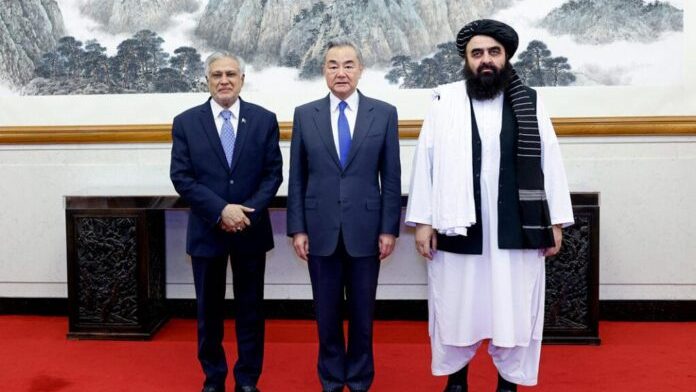Kabul, Islamabad Reboot Ties Amid China’s Mediation: Concern For India?
DIDPress: Times Now media outlet argued that following the terrorist attack in Pahalgam, India’s Sindhur operation, and India’s contacts with the Taliban government, China has stepped in. Although India does not officially recognize the Taliban government, there have recently been frequent interactions between Indian officials and Taliban representatives.

Pakistan has announced its decision to upgrade its diplomatic ties with Afghanistan and appoint an ambassador to the country. This happens to be a major indicator of improvement in ties between Pakistan and Afghanistan. The breakthrough was achieved during trilateral talks in Beijing held earlier this month in which China is believed to have played a key role. China moved swiftly to organise a talk between Islamabad and Kabul soon after India engaged the Taliban. India’s External Affairs Minister S. Jaishankar had spoken with Afghanistan’s foreign minister Amir Khan Muttaqi, days after the Taliban government condemned the terror attack in Jammu and Kashmir’s Pahalgam.
Afghan Foreign Minister to Visit Pakistan
Following the development, Afghanistan’s foreign minister Amir Khan Muttaqi is expected to travel to Islamabad soon on a first visit in two years, reported PTI citing sources. “He will visit Pakistan soon. Dates are being worked out,” said a diplomatic source. He will be on a three-day long visit to Islamabad.
China Hand In Pakistan-Afghanistan Reset?
The development comes days after the foreign ministers of Afghanistan and Pakistan met in Beijing. As per reports, China is believed to have played a key role in bridging differences between the two neighbours, leading to a possible agreement on upgrading ties.
Not to mention, Pakistan had tacitly applauded the capture of Kabul by Taliban in 2021 with the hope that their government would address its security concerns. But it proved otherwise and cross border attacks by the Tehreek-e-Taliban Pakistan (TTP) increased manifold.
The ties between Pakistan and Afghanistan plummeted as a result. Pakistan has been accusing Kabul of providing sanctuaries to the TTP militants and has been demanding action against them.
However, as per the recent understanding between the two nations, Taliban government in Afghanistan is expected to limit such groups and in return, Pakistan and China are willing to support Kabul both economically and diplomatically.
Concern For India?
China swung into action after India’s outreach to the Taliban administration in the aftermath of the Pahalgam terror attack and India’s Operation Sindoor. While India is yet to recognise the Taliban government in Afghanistan, there have been frequent engagements between Indian officials and Taliban government representatives recently.
Jaishankar, earlier this month, had a “good conversation” with Muttaqi and appreciated his condemnation of the Pahalgam terror attack. He had also “welcomed” his rejection of attempts to create distrust between India and Afghanistan, in an apparent reference to the fake claims of Indian missiles hiting Afghanistan.
Before EAM Jaishankar’s “good conversation” with Muttaqi, India’s top diplomat Anand Prakash had met Muttaqi in Kabul. Earlier, Foreign Secretary Vikram Misri had met Muttaqi in Dubai, in which the Afghan side assured India that it does not pose a threat to any nation and expressed hope for raising the level of diplomatic relations.
In a significant move, India also resumed visa services to Afghan citizens across multiple categories, including business, medical, and entry visas for artists and relatives. India had suspended visa services following the Taliban’s takeover in Kabul.
The geopolitical dynamics are shifting in Asia as India, Pakistan, and China are engaging the Taliban government in Afghanistan. The coming months may prove decisive in shaping Afghanistan’s place in the region and testing the limits of diplomatic pragmatism.